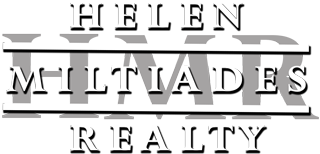Changes to Mortgages in 2014 and What You Need to Know
If you’re planning on buying a home in 2014 anywhere in the Savannah Georgia or Pooler area, it’s best to know what changes are coming down the line in the mortgage industry. Of course, if you’re planning on paying cash these rules won’t apply to you but some taxes and current home-buying laws may.
One of the biggest changes is on the high-end FHA loans. Typically, the FHA loan limits in high-marketed area or high-cost areas tops out at $729,000. It’s been this limit for the last few years in order to get more buyers onto the market, especially in high cost areas. Starting January 1, 2014 that number will drop to $625,000. The standard in most areas including Georgia is $417,000 for an FHA backed loan. Those that apply for an FHA loan will be required to contribute 3.5% down payment towards the purchase price of the home including closing costs. Many lenders and mortgage brokers may be able to build that into the cost of the home if the property will appraise for higher. (You must speak with your mortgage lender and real estate agent in order to create a creative financing program.)
Other changes will come in the form of the application process. Typically, the home loan process is about 100 pages total. With new rulings and laws, lenders are getting stricter when it comes to application qualifications. Some applications may reach over 500 pages, especially for those self-employed or those that need to prove multiple incomes. The more complicated your income is the more the lender will require of you. It’s best to start now and set aside all of your tax returns, W-2’s, pay stubs, income, debts, assets and liabilities as well as any bank statements and credit card statements. The lenders will require all of these documents in order to qualify you for a home loan.
Another possible change is the expiration of the Mortgage Debt Forgiveness Relief Act. This allows those that have to sell their home with a short sale or foreclosure the opportunity to forgive the difference between what they owed on the home and what the home sold for. With this act not in place, previous homeowners are responsible for that difference as income, paying taxes on it at tax time. The debt forgiveness act allowed that debt to be forgiven. Although it’s not technically income – cash in their pocket – the IRS considers that income and requires taxes to be paid on it. If we do not get an extension of this act, those in the short sale and foreclosure process may be required to pay taxes on that difference.
You might think all of these changes are negative but really it’s a sign of a recovering housing market and economy. Things are getting better so lenders are getting a little bit stricter in order to provide loans to those that qualify. Most of us assume that the act will continue to be extended as it has for the last few years but it’s always good to know as much as you can about future changes especially if you’re applying for a mortgage in 2014.
